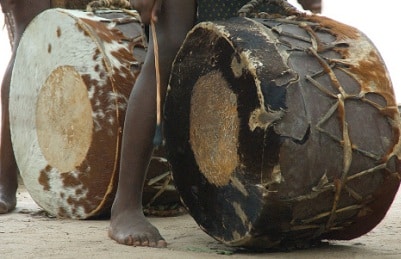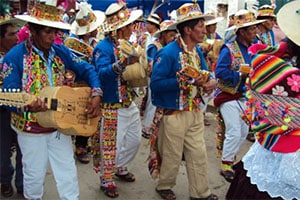 Ethnomusicology is a scientific discipline that is dedicated to studying music in its historical, social and cultural context . This means that it does not consider isolated compositions or the physical characteristics of sound, but rather analyzes creations as manifestations of human beings in a specific framework .
Ethnomusicology is a scientific discipline that is dedicated to studying music in its historical, social and cultural context . This means that it does not consider isolated compositions or the physical characteristics of sound, but rather analyzes creations as manifestations of human beings in a specific framework .
It is often stated that ethnomusicology is the ethnography or anthropology of music. It is about the investigation of music from an ethnographic, anthropological and even sociological vision.
To develop its studies, ethnomusicology usually includes the recording of music in its original place along with interviews with native musicians. This helps to detect the particularities that go beyond the artistic and allow us to understand music as a reflection of a particular culture .
Based on these questions, it is stated that ethnomusicology generates knowledge about musical cultures . Its specialists reflect on the function of music for a people and how music drives the construction of an identity .
There are different organizations and institutions that specialize in ethnomusicology. One of them is the Ethnomusicology Research Institute of the Ministry of Culture of the City of Buenos Aires ( Argentina ), which manages this area through the General Directorate of Artistic Education .
The Institute for Research in Ethnomusicology of Buenos Aires takes musical discourse as an expressive practice representative of a community . By studying it, it is possible to discover what communication, social and cultural processes underlie it and favor its production and transmission.
We must not forget that music probably emerged in the context of work, in our distant ancestors, as a way to liven up their arduous logging and harvesting tasks. In those ancient times, it is estimated that groups that spent several hours outside tried to adapt the noises and sounds of their activities to a common rhythm, to create what we know today as "percussion."
 Little by little, they surely included intoned sounds to give rise to improvised melodies, in what was the origin of music. Far from the possibilities of cultural exchange that we have today, the first human beings were not influenced by other societies when creating their own music, and this supports the ethnic character that this discipline studies.
Little by little, they surely included intoned sounds to give rise to improvised melodies, in what was the origin of music. Far from the possibilities of cultural exchange that we have today, the first human beings were not influenced by other societies when creating their own music, and this supports the ethnic character that this discipline studies.
Style or the market do not come into play here, but rather the needs of each culture, its concerns and its experience, all unique aspects that allow the creation of music different from all the others. Although experts have data and techniques that allow them to analyze music from different regions and eras, we can all perceive this authenticity , and it happens to us when we listen to folk music from somewhere for the first time.
With respect to the emergence of ethnomusicology, we must point out that human beings have been attracted to music and its different origins since they began to visit other territories. Some of the oldest documents that demonstrate this interest come from the 16th century, and focus on the music of the indigenous people of the American continent. During the following two centuries, on the other hand, the Enlightenment was characterized by a marked curiosity in expanding knowledge.
Throughout Romanticism, a cultural movement that began at the end of the 18th century in the United Kingdom and Germany, various monographs were written about the musical culture that came from Eastern countries. Additionally, the renowned musicologist Theodore Baker , born in the United States, began using music as part of his research within the field of ethnography , the science focused on the study of peoples and their respective cultures.
